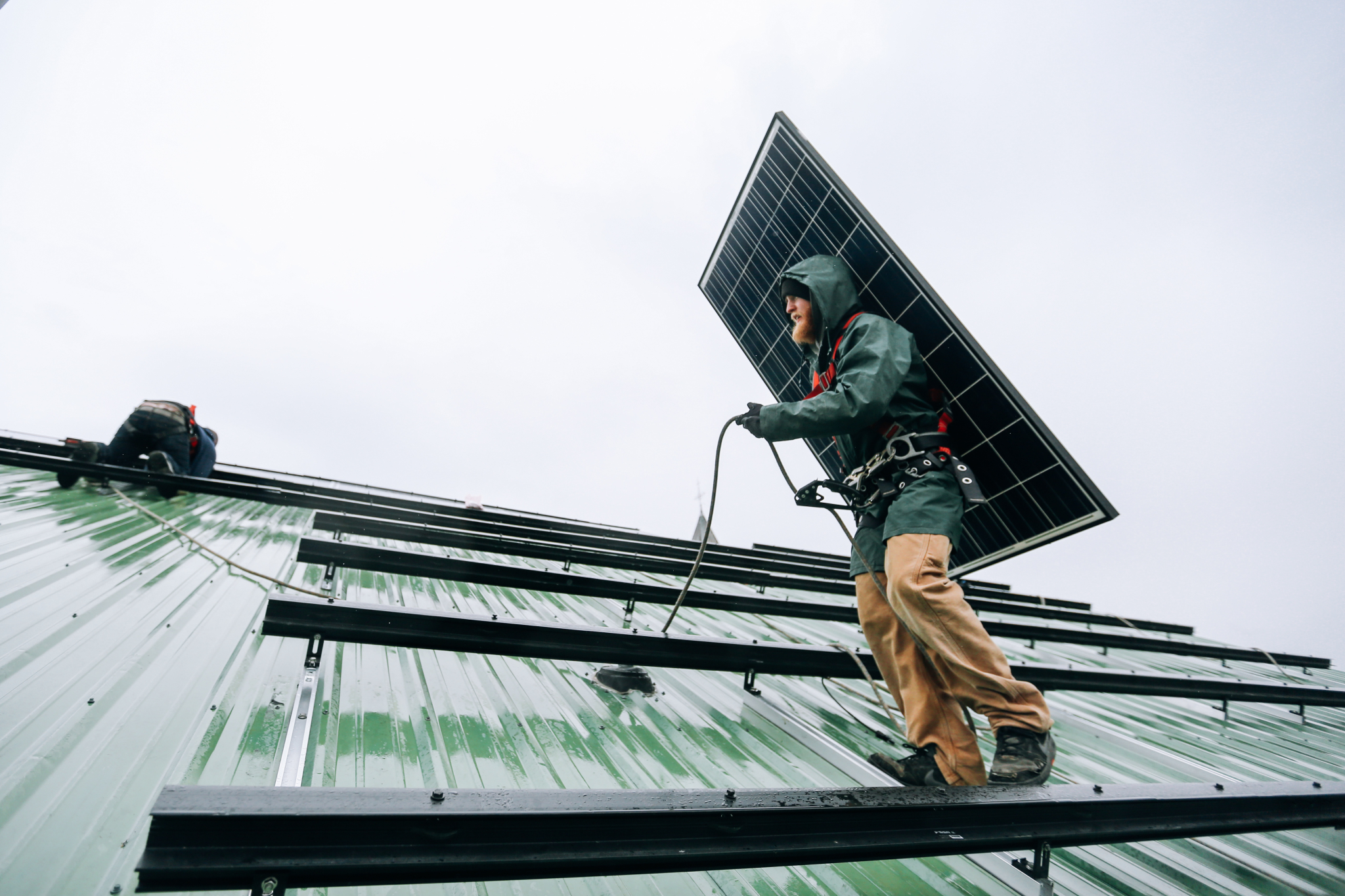It wasn’t long ago that most of the news about climate action was driven by some new government policy or program to encourage emission reductions. But today, you’re just as likely to hear about a breakthrough technology or a massive investment in the technologies needed to cut pollution, from solar projects to battery manufacturing, or the supply chains that feed them.
That’s because growing swaths of the private sector are now investing in an impressive range of clean technologies and practices that cut emissions and energy usage. In effect, these innovation-minded firms, from very large multinationals to boot-strapped startups, are doing precisely the sorts of things public policy demands, not only in response to regulation but rather because these activities are driving productivity, top-line growth and talent retention in today’s economy.
New Economy Canada, which officially launched this month, unites forward-looking businesses, labour groups and Indigenous organizations that collectively recognize the much-touted energy transition as an economic opportunity of the first order — a turning point moment, comparable to earlier watersheds, like the commercialization of electrical energy.
We represent companies from sectors including renewable power, the battery supply chain, energy efficiency, clean hydrogen, mining, cement and more. Indeed, our members — whose ranks include firms like Teck Resources, Nova Bus, and Raven Indigenous Capital Partners — have already turned the climate corner and see Canada’s rapid transition to a net-zero economy as fundamental to their future success.
As such, they are exceptionally well-positioned to take advantage of shifts that are no longer hovering in the middle distance. Across a range of scenarios, the International Energy Agency recently projected that fossil fuel consumption will peak by 2030 as the energy transition hits full stride. Globally, the companies that have positioned themselves to seize that moment — battery manufacturers, critical mineral miners, clean energy producers, to name just a few — will enjoy a massive head start.
Canada brings a lot to this transition: a highly educated workforce, a low-carbon grid, and a lively startup sector. The federal government has a strong track record in supporting basic and applied research. And Canadian firms have built a global presence in future-focused sectors like hydrogen fuel cells, carbon capture and advanced manufacturing.
Yet as the world shifts to a decarbonized economy, our policymakers need to be alive to the fact that the members of New Economy Canada and hundreds of other like-minded firms are in a race to develop and scale up the clean technologies of the future.
The American Inflation Reduction Act (IRA), just two years old, is seeing hundreds of billions in new investment flow into domestic green industries. While the IRA is by far the largest climate-focused program of its kind, it threatens to draw investment away from Canadian firms — a dynamic that could undermine their ability to scale and tap into markets beyond our borders.
Likewise, the European Union's Green Deal Industrial Plan is also attracting sustainable investment capital that might otherwise land in Canada.
While federal and provincial policymakers have been laser-focused on recent changes in the national carbon pricing policy, they mustn't forget that Canadian companies are facing an exceptionally competitive investment environment right now as a result of the industrial policies of our two largest trading partners.
At this juncture, it's critically important for governments of all political stripes, and at both levels, to keep focused on the economic opportunities.
That means expanding the supply of clean, low-carbon electricity and hydrogen; investing in the infrastructure required to bring these new supplies of energy to end-users, including traditional industries looking to decarbonize their operations; accelerating investments in skills training, particularly in communities that will be most vulnerable to job losses; advancing economic reconciliation with Indigenous communities as a basic condition for achieving net-zero goals; and continuing to invest in the commercialization of clean businesses.
We know our members also seek predictability because their backers — the individuals and investors willing to risk their capital on this economic transition — know it's impossible to advance new technologies and business models in an unstable policy environment.
Mostly, what the organizations that have signed on to New Economy Canada want policymakers to understand is that they're already aligned around the common goal of transforming the Canadian economy to meet this moment.
The accelerating energy transition is not just about climate; the future prosperity of Canadians actually depends on it.
Merran Smith is a fellow at Simon Fraser University’s Morris J. Wosk Centre for Dialogue and the founder and former executive director of Clean Energy Canada. She is the president of New Economy Canada, which unites business, labour and Indigenous leaders to drive Canada’s economic transition.
Well . . . (sigh) . . . Given
Well . . . (sigh) . . . Given that this country is run largely by lobbyists, I guess it's . . . good? that the renewables/electric/stuff sector is getting their lobbying shit together.






Comments